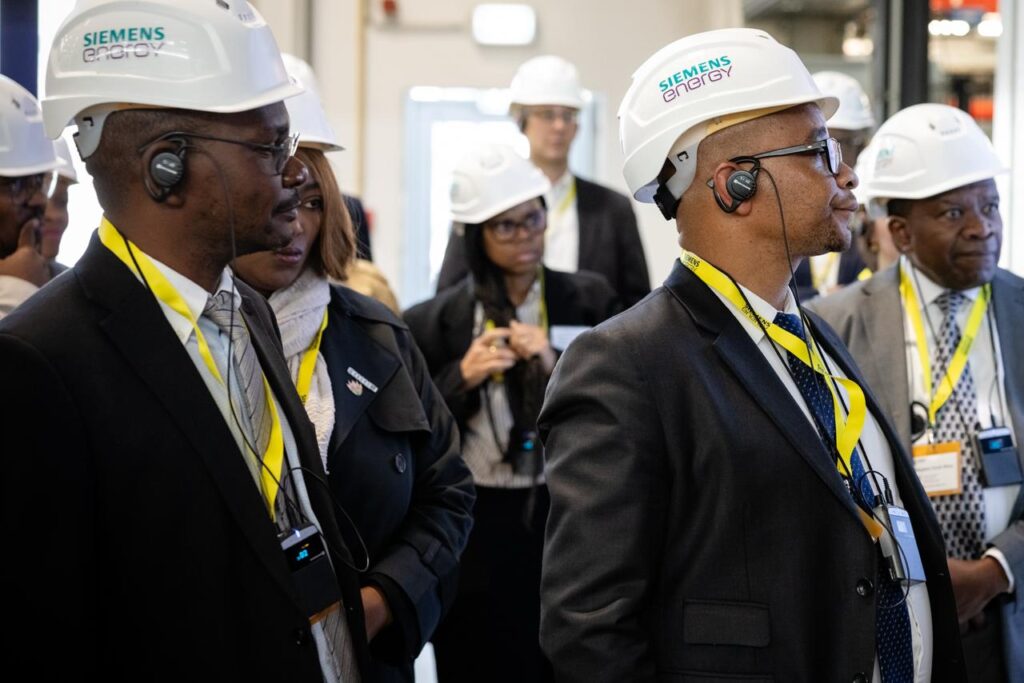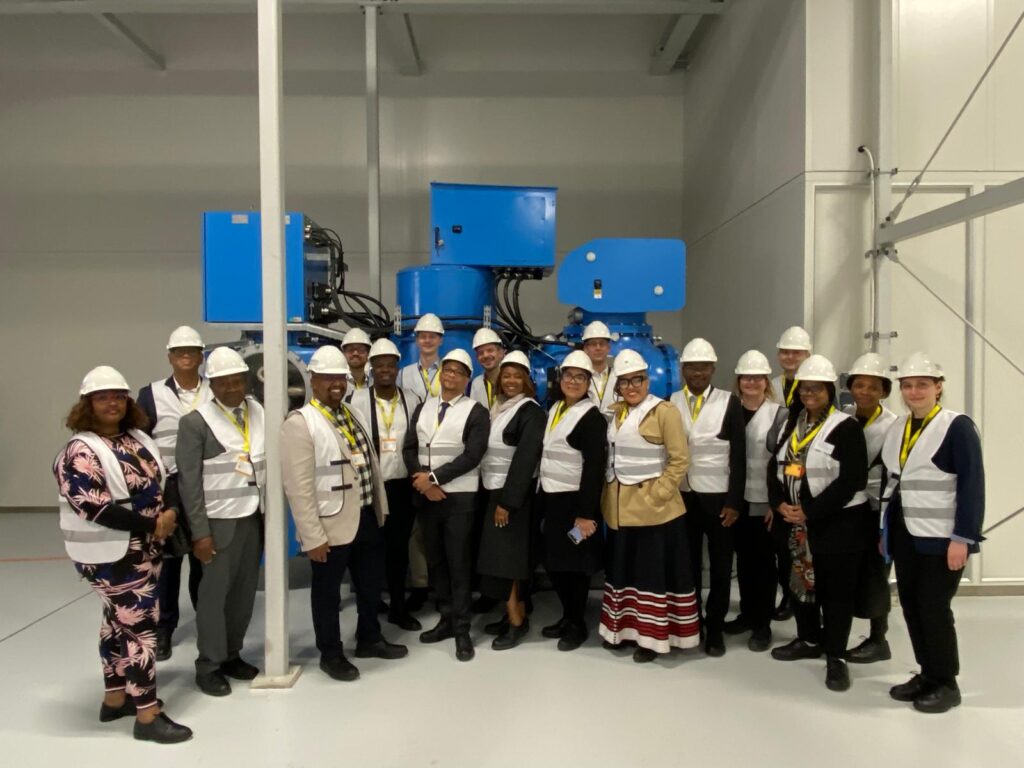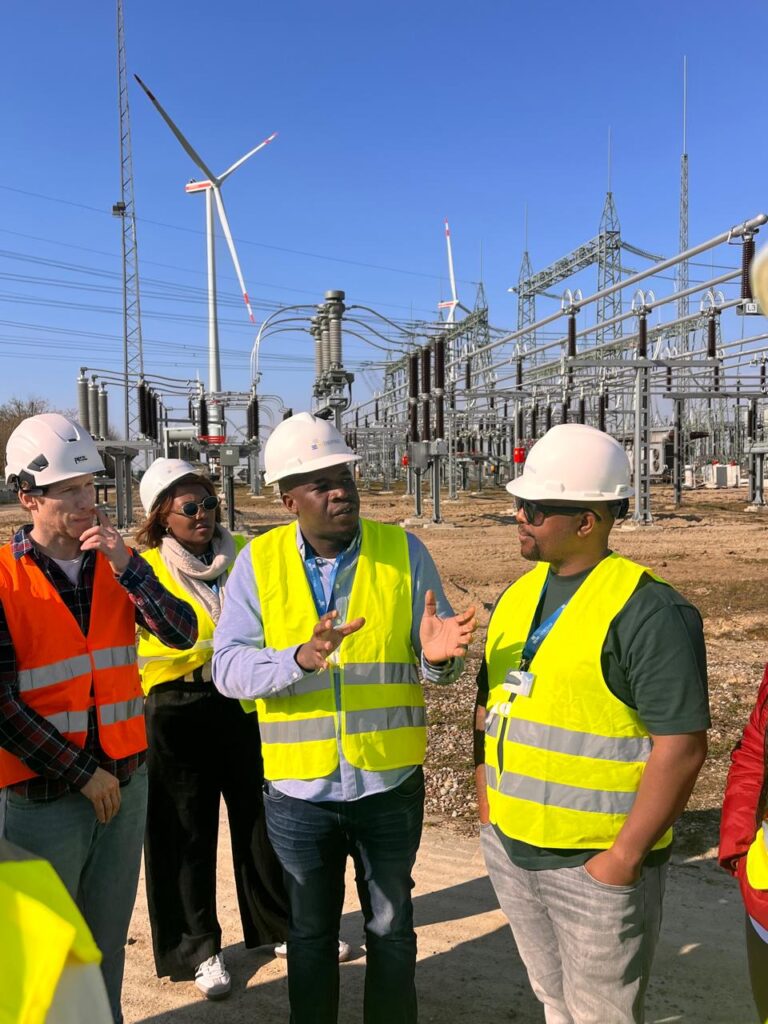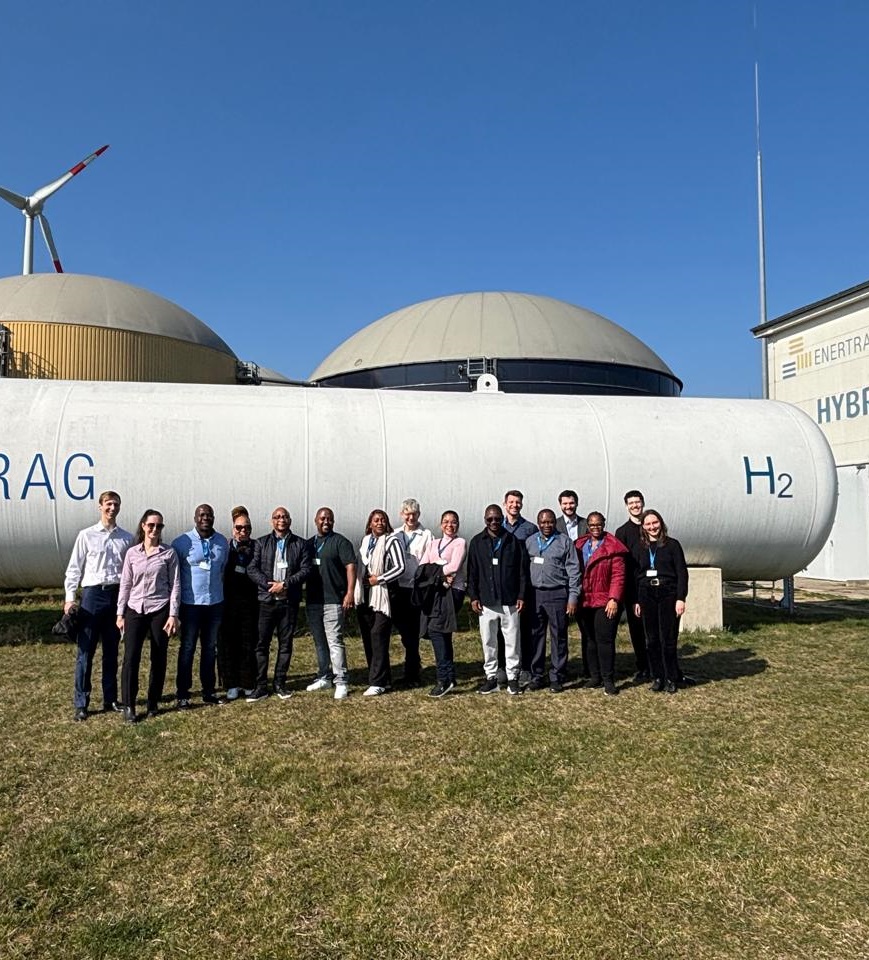The high-level South African delegation embarked on a week-long visit to Germany around the Berlin Energy Transition Dialogue (BETD) 2025, marking a significant step in strengthening international and bilateral energy cooperations, urgently needed to accelerate the Just Energy Transition globally. The BETD initiated the visit, which was rounded off with multiple bilateral meetings, side events and site visits in and around Berlin.
Every year, the BETD brings together high-level policymakers, industry leaders, academics, and civil society to discuss a secure, affordable, and sustainable energy future. In a climate of global change and growing energy demands, the event provided a powerful platform for South Africa, under its G20 Presidency, to set the theme “Fostering Solidarity, Equality and Sustainable Development” and to influence multilateral discussions on a Just Energy Transition in the Global South.
Setting the agenda at official BETD side events and bilateral engagements
The German-African Energy Forum, organised by the German-African Business Association aimed to accelerate market development in the energy sector by addressing barriers such as access to finance and long-term offtake agreements. Dr Rebecca Maserumule, Director of the JET-IP Green Hydrogen PMO in the South African International Development Corporation (IDC) presented South Africa’s investor-friendly green hydrogen strategy, emphasising its co-ownership by the government and the private sector in a panel discussion on “Developing, Financing and Implementing Africa’s Energy Vision”. Later, Dr Titus Mathe, CEO of the South African National Energy Development Institute (SANEDI) pitched South Africa, outlining the country’s G20 Presidency and its energy transition priorities for Africa. Mr Shawn Modise, CEO, Northern Cape Economic Development Trade and Investment Agency (NCEDA) then positioned the Northern Cape as a hub for clean energy with abundant critical raw materials and significant green hydrogen potential.
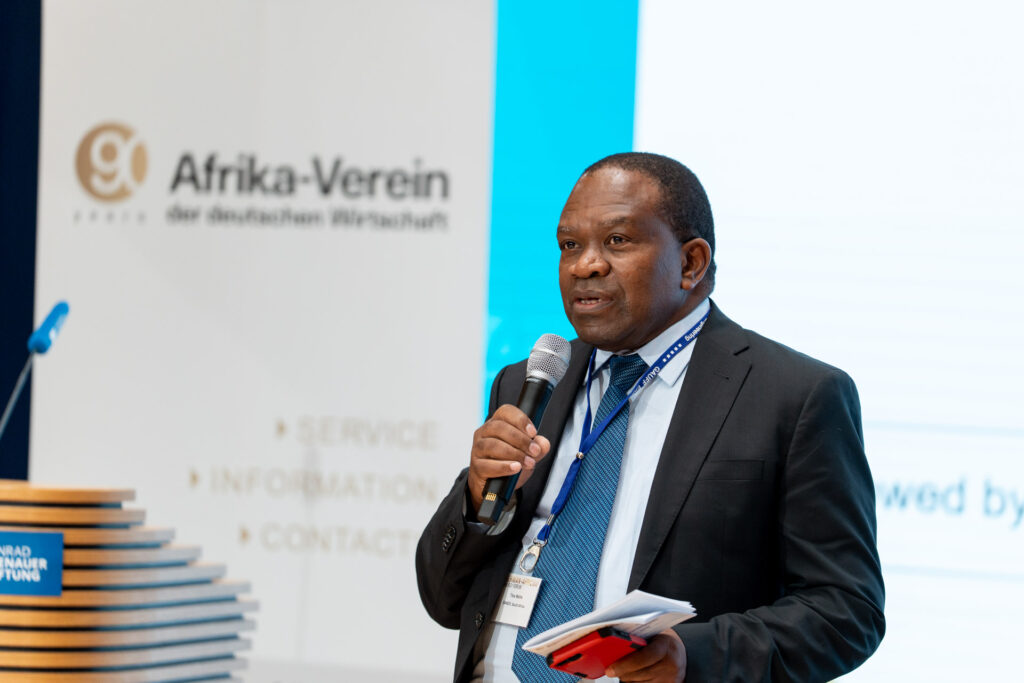
Dr Titus Mathe, SANEDI presenting the South African energy transition priorities. 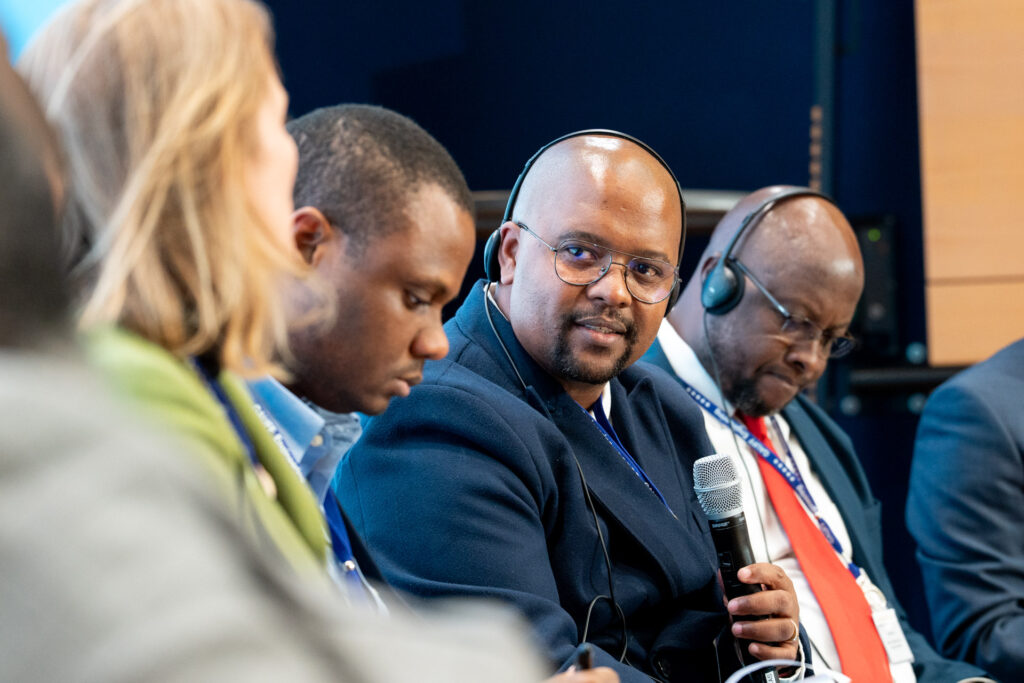
Mr Shawn Modise, NCEDA at a panel at the German-African Energy Forum positioning Northern Cape’s as a clean energy hub.
A joint event by the International Renewable Energy Agency (IRENA) and the Deutsche Gesellschaft für Internationale Zusammenarbeit (GIZ) GmbH at the German Federal Ministry for Economic Affairs and Climate Action (BMWK) introduced the idea of combining skills development with climate action to access climate financing funds. Prof Sampson Mamphweli, Head of the Energy Secretariat of SANEDI, showcased best practices from South African universities, including incubator and accelerator programmes that help students transform their technological expertise into successful start-ups. That same day, Dr Titus Mathe, SANEDI presented South Africa’s progress in energy efficiency during the Energy Efficiency Day, while Dr Maserumule provided insights into the global green hydrogen economy by discussing challenges and pathways. The day concluded with two evening receptions and networking hosted by the BMWK and GIZ. In a side event on female changemakers for green lead markets, Ms Shanon Neumann, Acting Executive for Ease of Doing Business at the Freeport Saldanha highlighted the potential of green steel production at Saldanha Bay.
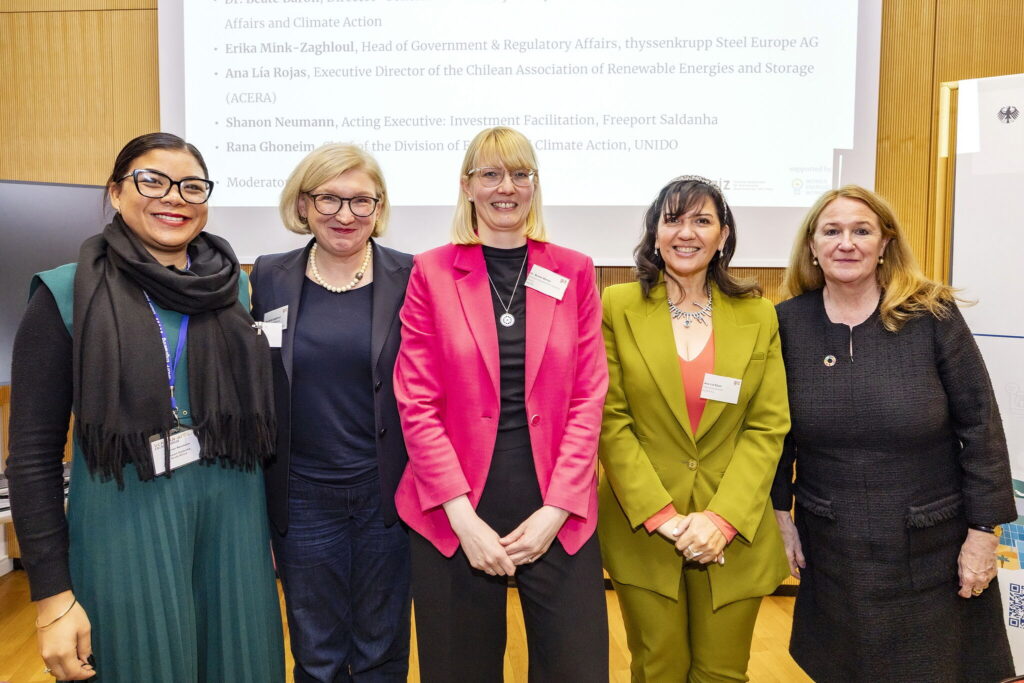
Ms Shanon Neumann, Freeport Saldanha (left) at the BETD side event”Female Changemakers on the Decarbonisation of Supply Chains and Green Lead Markets”. 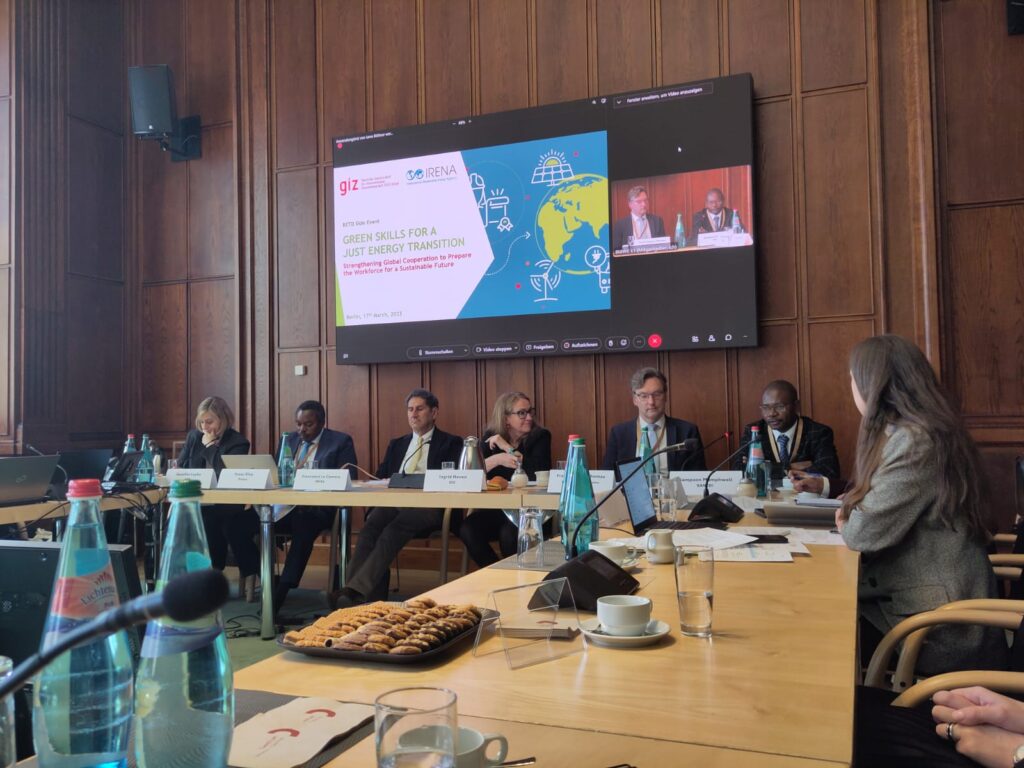
Prof Sampson Mamphweli, SANEDI (right) at the “Green Skills for a Just Energy Transition” BETD side event.
Focusing on strong and reliable long-term partnerships with shared values at the BETD 2025
On Tuesday, the official BETD programme commenced at the German Federal Foreign Office. In the panel “Fast-Tracking Africa’s Economic Growth with Renewable Energy”, Dr Maserumule, IDC engaged with key figures including Kenya’s Deputy Energy Minister, the EU Deputy Director General for Energy, and other prominent leaders and highlighted South Africa’s ambitions in green hydrogen and the pivotal role of international partnerships, such as the hydrogen cooperation with Germany.
At the SET Tech Festival, an all-day start-up event at Westhafen, the delegation networked with innovative start-ups and research institutions developing energy solutions that could be attractive to the South African market, such as solar PV recycling.
A workshop on green hydrogen and PtX demand mechanisms, organised by the Green Hydrogen Business Alliance, brought together policymakers and potential offtakers to present current support mechanisms and brainstorm new ideas on how to gap the supply-demand mismatch. The day concluded with the SET Award Ceremony and the BETD official evening reception at WECC Westhafen, where the 9th SET Awards recognised start-ups across five categories and underscored the need for robust international partnerships amid current geopolitical challenges.
The second day of the BETD started off with high-level engagements at the African Union’s High-Level Policymaker’s Breakfast at the Federal Foreign Office on the importance of strengthening framework conditions to accelerate SDG7 in Africa through coordinated public finance and private sector mobilisation.
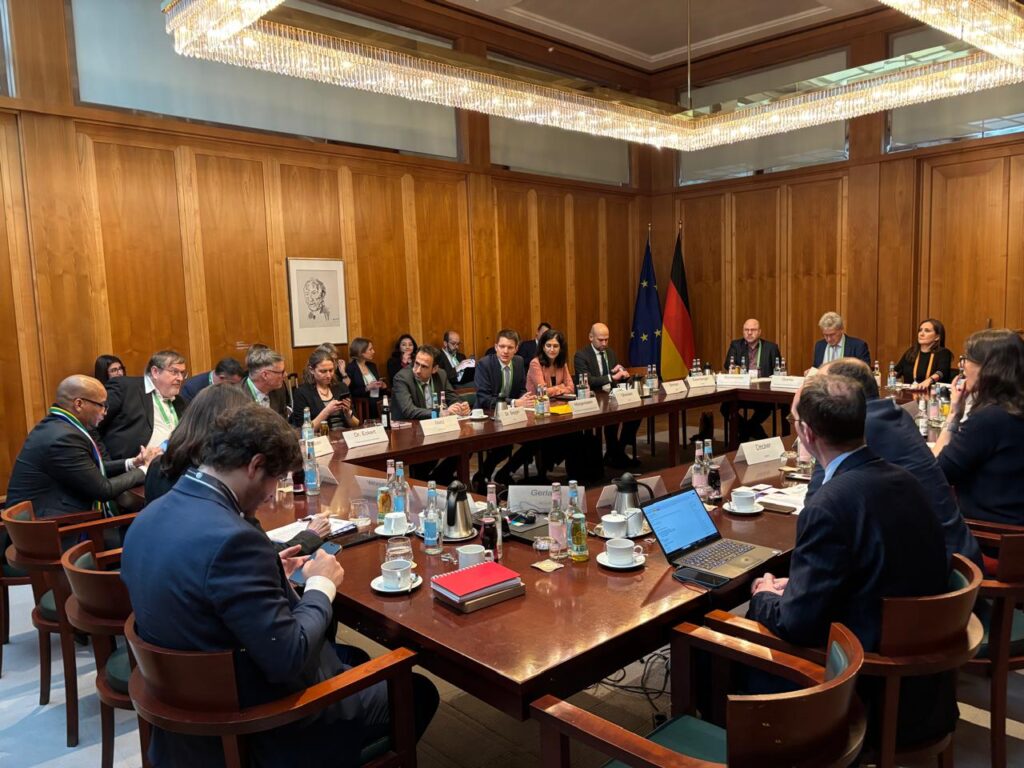
The African Union’s High-Level Policymakers Breakfast at the Federal Foreign Office. 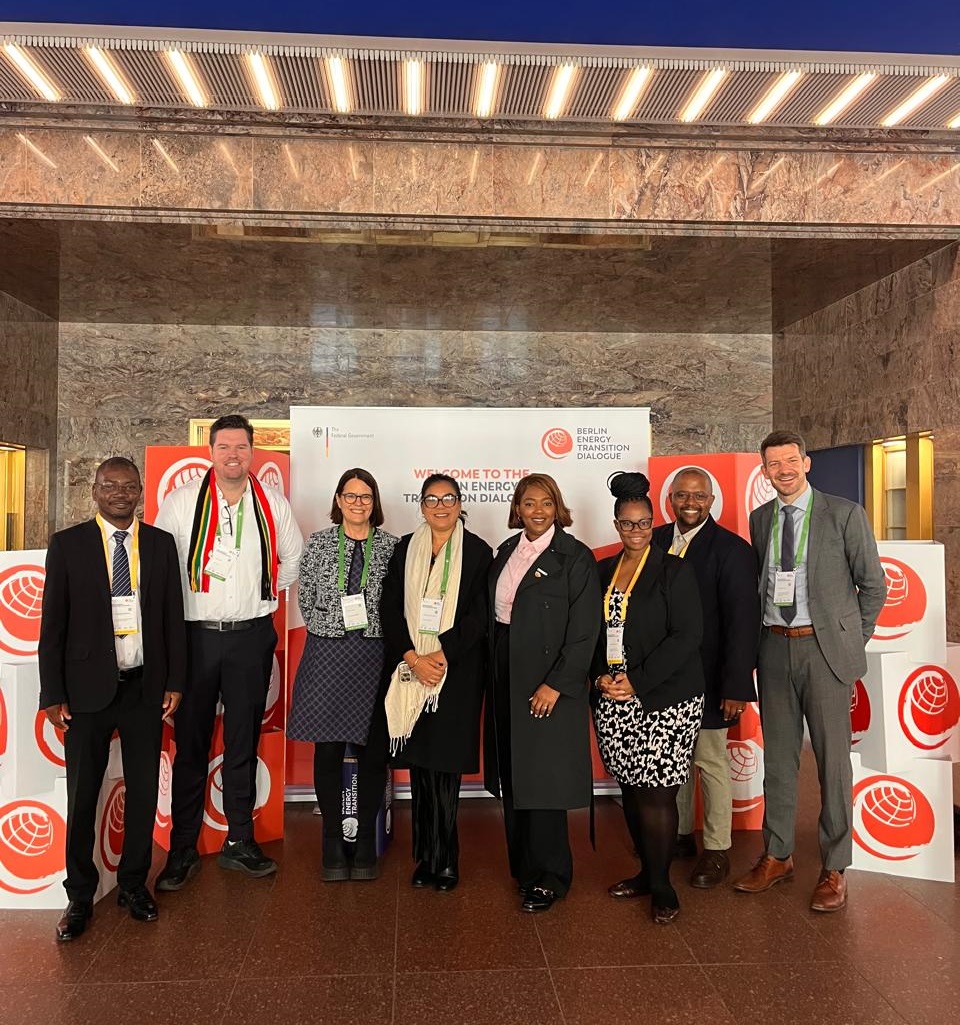
The South African delegation at the BETD 2025.
The BETD’s second day commenced with an opening keynote by Dr Rethabile Melamu, CEO of the South African Photovoltaics Industry Association (SAPVIA), who shared a personal story linking energy access to the socio-economic challenges in Southern Africa, which must be considered for a truly Just Energy Transition. An ensuing panel discussed power grids for renewable energy expansion, where Prof Mamphweli, SANEDI presented South Africa’s plans and progress on transitioning from a coal-based energy system to one with an increasing share of renewables.
A bilateral meeting with a high-level Brazilian delegation further enriched the dialogue, exchanging valuable lessons from Brazil’s experience with the G20 energy track, including the benefits of focused priorities and agenda setting.
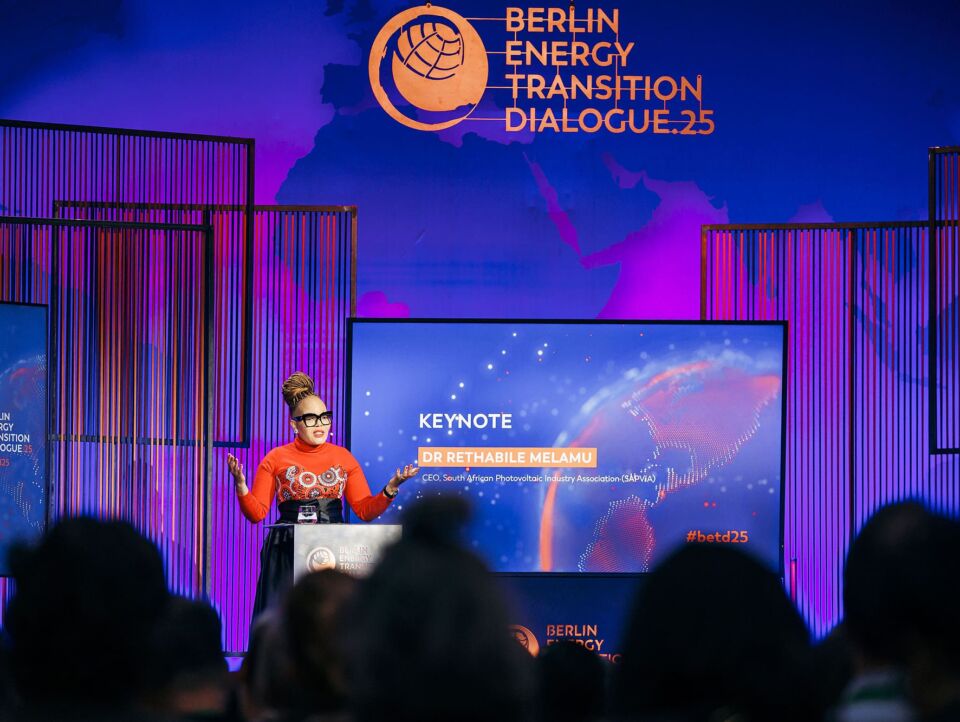
Dr Rethabile Melamu, SAPVIA giving her keynote address at the BETD 2025 plenary. 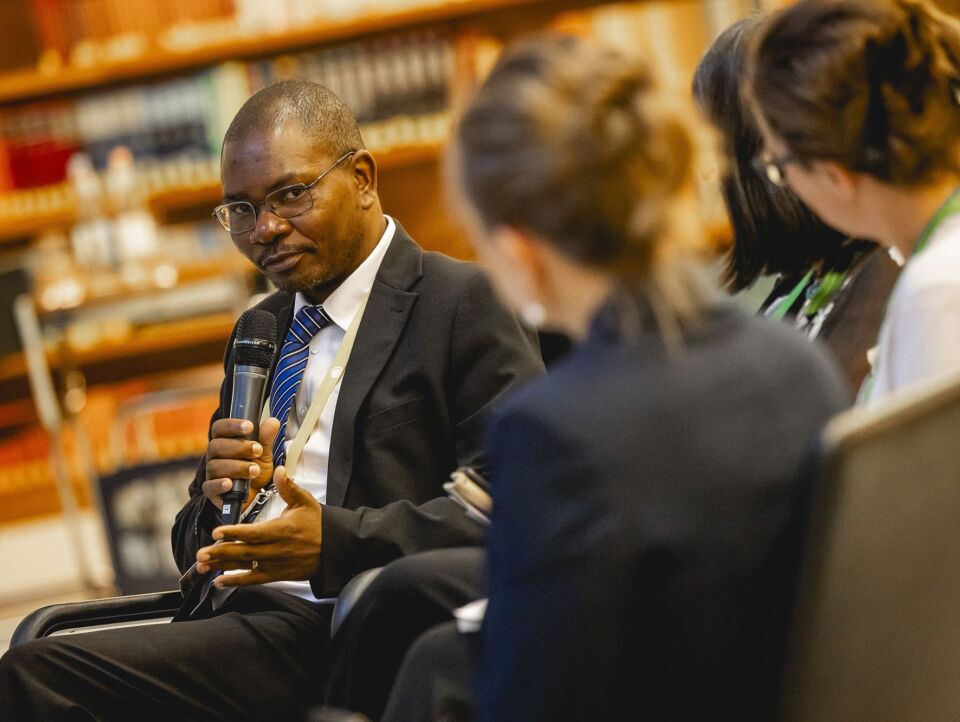
Prof Sampson Mampheli, SANEDI at a BETD panel on grid expansion.
South Africa’s G20 Presidency’s opportunity to align on a shared vision for a Just Energy Transition
Thursday, 20 March, zoomed in again on South Africa’s G20 Presidency at an event hosted by the South African Embassy. Dr Titus Mathe, SANEDI led a detailed discussion on South Africa’s vision for the G20 Energy Transition Working Group. In the ensuing panel, moderated by Prof Sampson Mamphweli, SANEDI, Dr Jorge Marcial Islas Samperio, Under-Secretary for Energy Planning and Transition in the Government of Mexico, Ms Vidisha Mishra, Director Global Outreach & Policy at the Global Solutions Initiative Foundation, Ms Stefanie Schmid Lübbert, Head of Sub-Sahara Africa Division at the BMWK and Dr Towela Nyirenda-Jere, Head of Secretariat at the Africa-EU Energy Partnership (AEEP) debated the importance of an inclusive energy transition that balances climate ambitions with industrial growth and socio-economic equity.
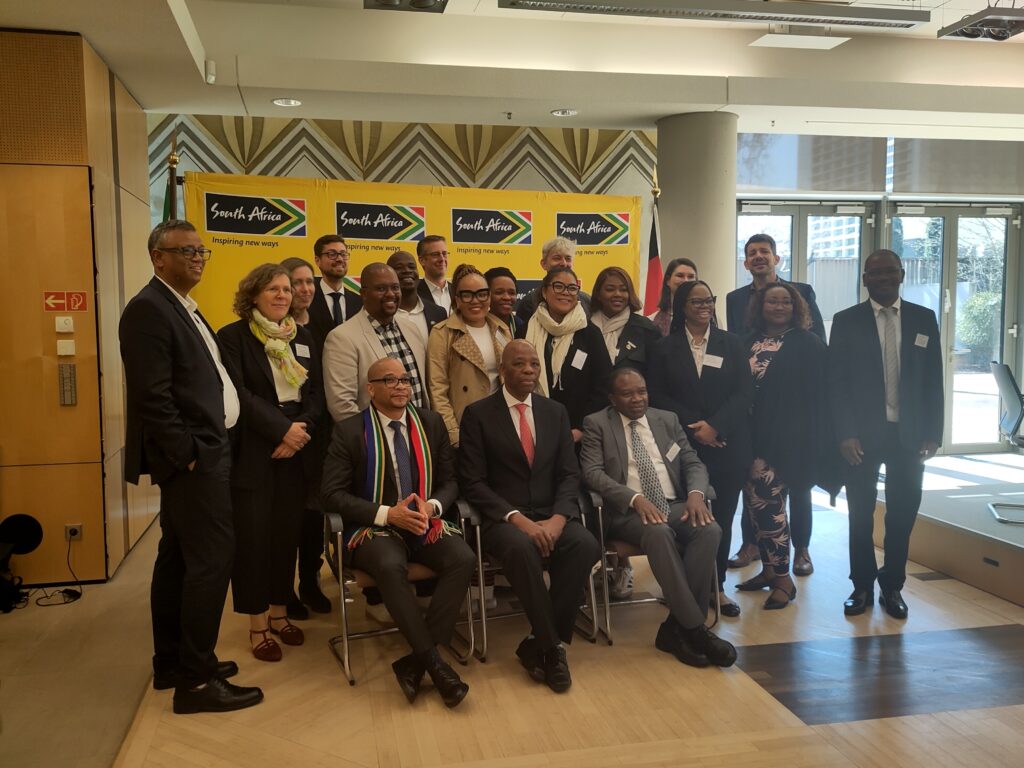
Integrated technology solutions for a stable and renewable grid and green hydrogen production
In the afternoon, a site visit to Siemens Energy’s electrolyser stack factory, a hydrogen-ready gas turbine manufacturing plant, and a facility producing HVDC switchgear and transformers showcased the critical technologies that can stabilise and decarbonise the South African grid.
The week’s programme concluded with a visit to Enertrag’s head office in Dauerthal, Northeastern Germany. Here, the focus was on Enertrag’s innovative approach to developing an integrated “renewables power plant” concept. The facility showcased collector substations that integrate wind and solar PV with battery storage to generate behind-the-meter baseload power, which can subsequently be fed into the national grid. Approaches such as these offer opportunities to integrate more and more renewables into the grid and should be considered in national energy modelling and planning.
Throughout the week, this series of high-level engagements, keynotes, panels, site visits, and in-depth discussions illustrated the commitment of both South Africa and Germany to drive forward the global energy transition. The exchange of ideas, best practices, and innovative technologies during BETD 2025 has not only reinforced bilateral ties but also set new energy and momentum for a strengthened cooperation.
The delegation was led by Thabo Kekana, Deputy Director General Programmes and Projects, Department of Mineral Resources and Energy (DMRE) and co-organised by the South African-German Energy Partnership and the International PtX Hub South Africa.

